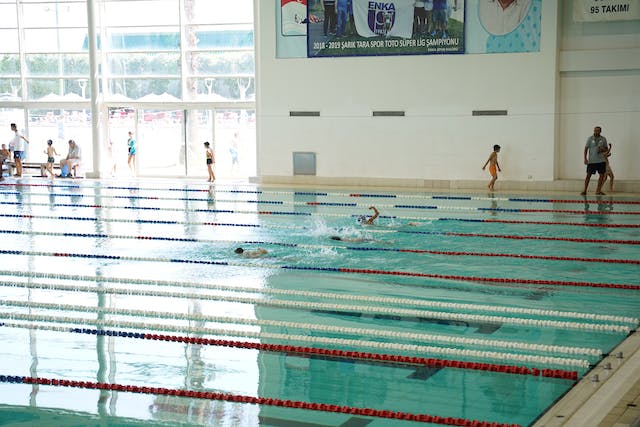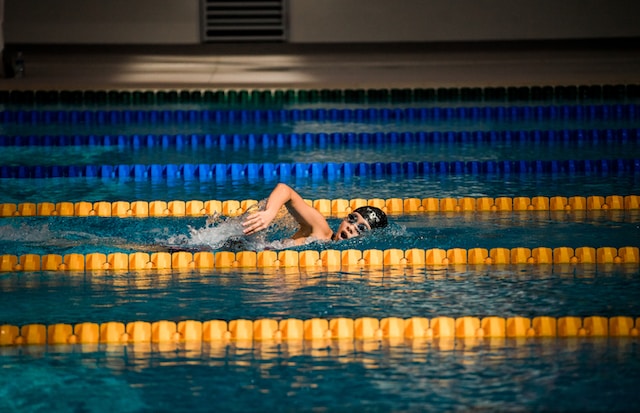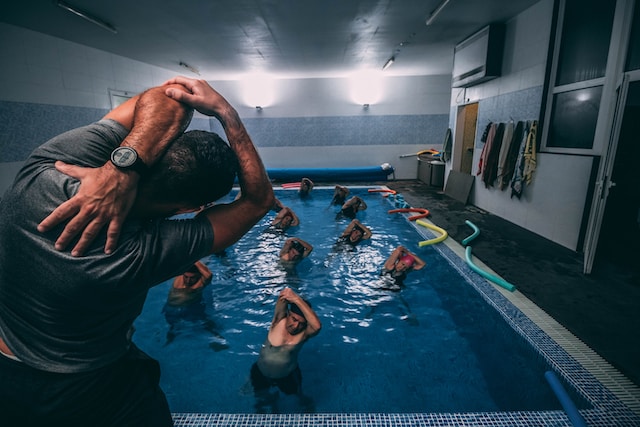Becoming a swim coach is a rewarding journey that combines a love for the sport of swimming with a passion for teaching and mentoring. Swim coaches play a crucial role in shaping the future of competitive swimmers and helping individuals of all ages develop their swimming skills.
In this comprehensive guide, we will explore the career paths, responsibilities, and daily life of a swim coach. We’ll delve into the qualifications, certifications, and skills required to excel in this profession, as well as the various avenues for advancement and specialization within the field.
Introduction to Swim Coaching
At its core, a swim coach is a mentor and instructor who guides individuals to improve their swimming techniques and achieve their goals. Coaches work with swimmers of all ages and skill levels, from beginners learning to float and kick to elite athletes competing at national and international levels. They help athletes develop endurance, strength, and the perfect stroke, as well as instill discipline, sportsmanship, and a winning mindset.
Educational and Certification Requirements

To start a career as a swim coach, having a strong background in swimming is essential. Many coaches were former competitive swimmers themselves, as this experience provides an in-depth understanding of the sport. A degree in sports science, physical education, or a related field can also be beneficial.
Coaching certifications are often required or highly recommended. Organizations like the American Swimming Coaches Association (ASCA) offer various levels of coaching certifications, ranging from Level 1 (Assistant Coach) to Level 5 (International-Level Coach). These certifications demonstrate a coach’s commitment to professional development and proficiency.
Career Paths for Swim Coaches
Many swim coaches begin their careers by coaching at local swim clubs or schools. Club coaching provides a foundation for aspiring coaches to hone their skills and build their reputation within the swimming community.
Colleges and universities often hire swim coaches to lead their varsity swim teams. These positions offer a higher level of competition and provide a stepping stone to more advanced coaching opportunities. You can also find job opportunities from online job posting platforms like https://www.indeed.com/ or https://worki.mn/
For the elite coaches, there are opportunities to coach at the national and international levels. This may involve coaching swimmers who compete in events like the Olympics or World Championships.
Responsibilities of a Swim Coach

One of the primary responsibilities of a swim coach is to design and implement training programs tailored to the specific needs and goals of their swimmers. These programs include a combination of pool workouts, dryland exercises, and mental conditioning. Coaches also closely observe their swimmers in the pool, providing feedback on stroke technique and suggesting improvements.
Swim coaches play a significant role in motivating and mentoring their athletes. They offer encouragement during challenging training sessions, instill self-confidence, and provide guidance on setting and achieving goals. Coaches are also responsible for preparing their swimmers for competitions. This involves developing race strategies, overseeing tapering periods, and managing the psychological aspects of competition.
A Day in the Life of a Swim Coach
A typical day for a swim coach often starts early with morning practice sessions. Coaches lead swimmers through structured workouts, focusing on technique, speed, and endurance. After practice, coaches may use video analysis tools to review swimmers’ performance, providing constructive feedback for improvement. Coaches also handle administrative tasks, such as scheduling, communication with parents and athletes, and organizing swim meets and events. The day concludes with evening practice sessions, where coaches reinforce the lessons from earlier in the day.
Advancement and Specialization

Some coaches specialize in working with specific age groups, such as young beginners or master swimmers. These specializations require tailored coaching approaches. Experienced coaches may progress to become head coaches, responsible for overseeing the coaching staff and the entire swim program. Coaches can also venture into consulting or private coaching, offering one-on-one training and personalized programs to individuals seeking focused improvement.
The Future of Swim Coaching
Advancements in technology, such as wearable devices and underwater cameras, are changing how coaches analyze and monitor their swimmers’ performance. As swimming continues to grow in popularity, opportunities for swim coaches are expected to expand, both domestically and internationally.
Conclusion
Becoming a swim coach is a rewarding journey that offers a unique blend of personal fulfillment and the opportunity to make a positive impact on athletes’ lives. The role of a swim coach is multifaceted, requiring a deep understanding of the sport, strong leadership, and mentoring skills, and a commitment to continual improvement. Whether you’re considering a career in coaching or are simply curious about the profession, the life of a swim coach is a fascinating world where dedication to the sport and the athletes you guide can lead to a fulfilling and impactful career.


Recent Comments